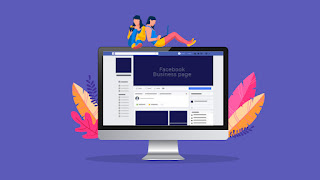Is Podcast Advertising Worth It?
Podcasts created by combining an iPod with a broadcast.
This complex mathematical equation will be very familiar to those who are familiar with podcasts.
In principle, this is accurate, but in practice,
podcasts have progressed well beyond simply being another radio channel designed
for the average Apple device.
Podcasts are an On-Demand platform that allows individuals to talk about anything
in the video or, more often, audio form.
They are generally talks between a presenter and a guest about a certain topic.
They are conveniently available, the downloadable video that addresses a specific topic
that captivates a certain target demographic.
Podcasting is quickly increasing in popularity.
Podcasting is becoming the On-Demand platform that replaces audio media such as
radio stations, just like On-Demand-Video services such as Netflix and HBO
Go have done for entertainment.
Because it is available on all smart-phone and tablet devices,
it is popular for its free offline usage and mobility.
This popularity mostly developed in the United States.
With over 57 million Americans listening to podcasts this year
(a 23 percent increase from 2016),
this is undeniably becoming a popular pastime among people,
and we are already seeing its global expansion.
Organized events like the Asia Pacific Podcast Conference (APPC) have grown up
solely to promote podcasting in countries other than the United States and to connect
the podcast community.
The app's objective is to expand not just the number of listeners from Asia and Australia,
but also the development of material especially targeted to those nations.
Podcasts range from interactive training exercises
(such as the extremely famous Brain Training Podcast)
to political discussions with noteworthy guests
(such as Marc Maron's podcast conversation with former Vice President Al Gore),
National Public Radio in the United States, and TV show-related news
(the widely followed Game of Thrones Podcast).
This sort of classification enables any listener to cherry chooses their podcast depending
on their preferences, as well as any advertiser to cherry-pick their ideal audience.
Podcast advertising is distinct and helpful to advertisers in a variety of ways.
These advertising seem more like endorsements for your product or service,
as they are delivered by the podcast's trusted presenter.
They must be unique, timeless, and fascinating to an audience that will most likely hear your message several times.
A podcast is often a casual discussion on a topic from a presenter,
and it is for this purpose that the channel's listeners tune in.
This type of media typically draws more rich and educated people from economically developed countries,
resulting in a wealthier client.
They don't want the flow of the conversation to disrupted,
which is why they don't respond well to a typical radio commercial that planned
or prepared and disrupts the flow of the conversation.
Ideally, you should aim for an ad that captivates and thrills people while not disrupting the flow of the conversation.
An evergreen advertisement is ageless, current, and compelling.
If a podcaster published one tape every day for four months,
the content you put out in an ad may hear nearly 125 times (which many do).
It is critical that people do not become bored of hearing it.
Conclusion
The final and most crucial reason to consider podcast
advertising is that once your ad has broadcast,
it is irreversible. Users may listen to a podcast from the minute it airs until ten years later on the same day.
Nothing about that podcast has changed, which means that the investment you made
ten years ago might still be beneficial to your business now.
You may contact Nummero, a top digital marketing agency in Bangalore.



Comments
Post a Comment